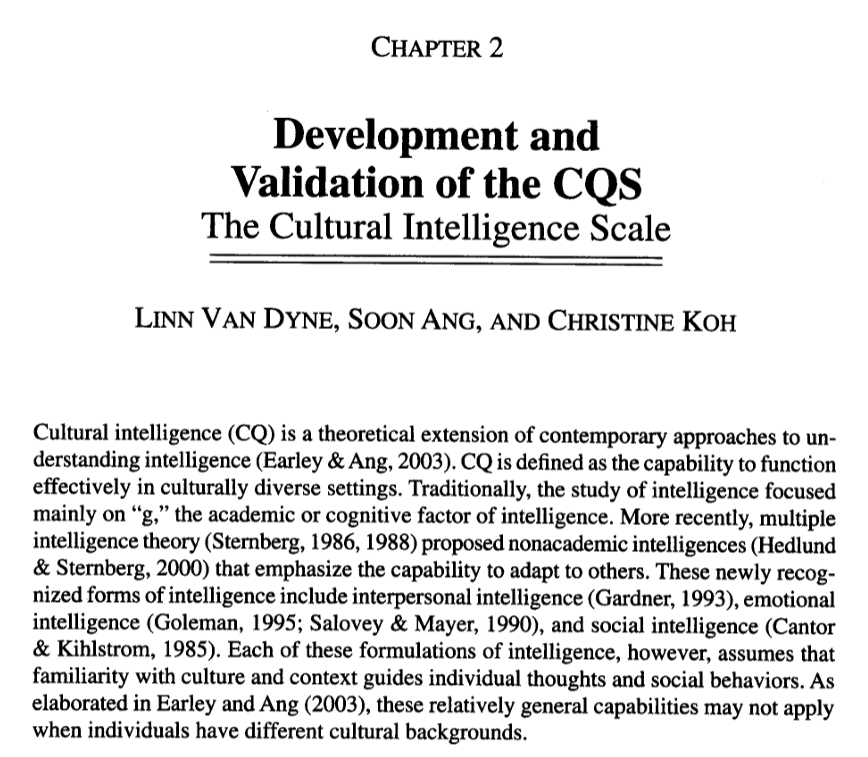Cultural Intelligence Scale

What is it and how does it work?
The Cultural Intelligence Scale (CQS) is a 20-item self-report rating scale that measures four dimensions of cultural intelligence: metacognitive, cognitive, motivational, and behavioral (Dynne, Ang, & Koh, 2015). It has been validated for use with diverse college student populations (Bücker, Furrer, & Weem, 2016).
Surveys may be administered multiple times in a semester to collect longitudinal data.
Which skill(s) are targeted?
The Cultural Intelligence Scale can be used to collect students' self-report ratings of their own skills in the following competency areas:
- Explore how cultural contexts influence individual identity development
- Consider, examine, and integrate differences between individual positions and the positions of others in multiple cultural contexts.
- Demonstrate an attitude of inclusion by engaging mindfully across a diversity of lived experiences
Who else has used it?
- Core@CM, CMU-Q
- Dietrich College General Education Program
- Mellon College of Science Core Education Program
 Educator time commitment
Educator time commitment
15 minutes
 Student time commitment
Student time commitment
5 minutes
Contact eberly-assist@andrew.cmu.edu for help with incorporating this resource.
Educator how-to steps
- Download and review the Cultural Intelligence Scale.
- Decide when students should complete the Cultural Intelligence Scale and then include this in the corresponding assignments/instructions to students.
- Set up the assignment in Canvas (or as you normally would). NOTE: We have a Canvas assignment shell with the Cultural Intelligence Scale that you can copy to your Canvas course. Contact eberly-assist@andrew.cmu.edu to ask for help with this.)
Reference
Bücker, J., Furrer, O., & Weem, T. P. (2016). Robustness and cross-cultural equivalence of the Cultural Intelligence Scale (CQS). Journal of Global Mobility: The Home of Expatriate Management Research. https://doi.org/10.1108/JGM-05-2016-0022
Van Dyne, L., Ang, S., & Koh, C. (2015). Development and validation of the CQS: The cultural intelligence scale. In Handbook of cultural intelligence (pp. 34-56). Routledge. https://culturalq.co.uk/wp-content/uploads/2019/03/Van-Dyne_Ang_Koh-Handbook-Ch-2-CQS-Scale-1.pdf